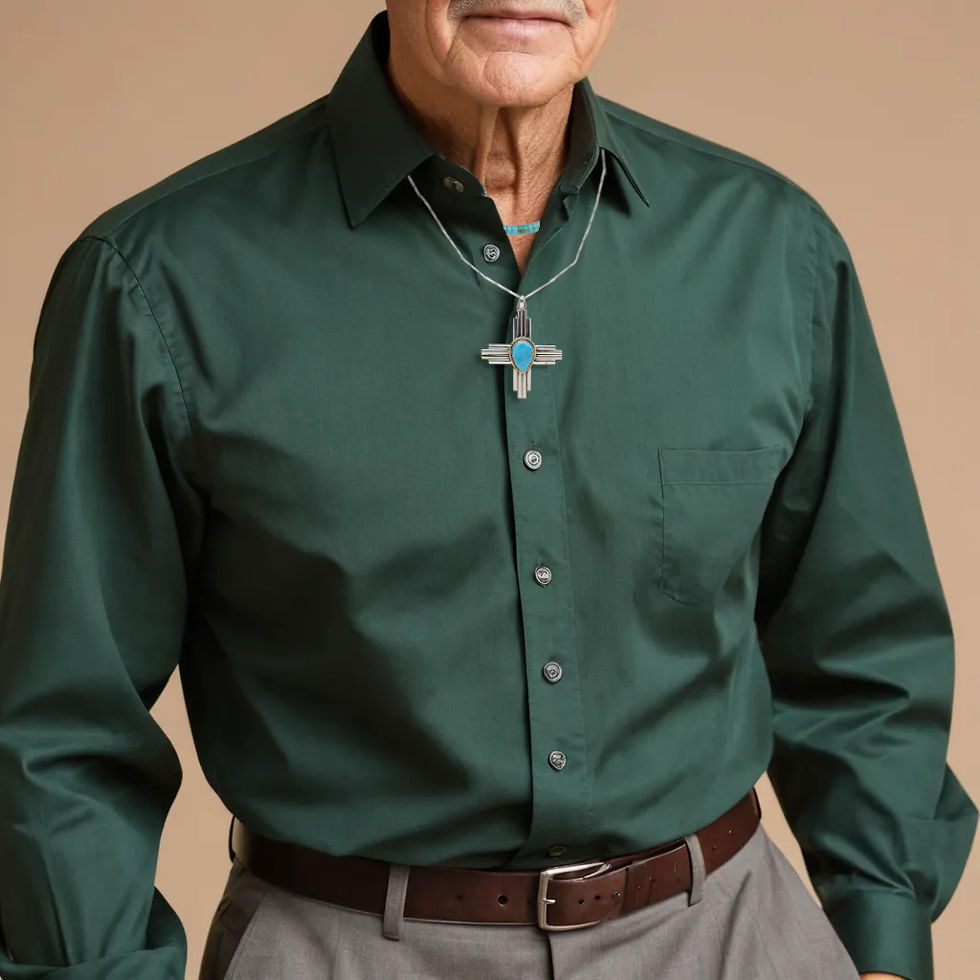Chickasaw
Oklahoma
Chickasaw pronounced as 'CHICK-uh-saw' means "they left as a tribe not a very great while ago." it is belived to be derived from the Choctaw phrase "chik’asha ashachi".
Originally the Chickasaw land spanned from modern day Mississippi, northwestern Alabama, western Tennessee and western Kentucky.
First European contact was made in the early 16th century with the Spanish explorer Hernando de Soto near what is now Mississippi. Chickasaw had already received word of the Spanish's true intention for land and blood thirst from a neighboring clan. Spaniards moved grounds quickly after escalated disagreements with the Chickasaw. In fact Chickasaw would be met not only by the Spanish but English and French as well.
However, Chickasaw would not relinquish their rights, lands or identity to the Western way. Continuing the traditional ways, men were hunters and warriors often shaving their heads leaving a single scalplock or hair roach. A scalplock is a small circular patch of hair at the heads crown or mid crown. Hair roach can be envisioned like a colorful Mohawk, made from stiff animal hairs; for example, porcupine, deer tail hair or moose hair. Possibly dying the hairs certain colors, attachment to a man's natural hair was achieved by a headband or through a braid. Men would also wear special tattoos as a way of honoring their accomplishments. Brightly colored face and body painting was applied during battles or for festivals as well. Women were farmers and domestic caretakers, and everyone participated in storytelling, artwork and music, and traditional medicine. Much like the Hopi's of the West, Chickasaw lineage was matrilineal, their ancestral lineage can be traced though their mothers and women played a dominate role in the home and clan community.
Perhaps it was through these first encounters and trades that the Chickasaw became inherently versed in the Western Culture. Chickasaw was the last of the Five Civilized Tribes (a group considered by the Europeans to be civilized) to embark on the Trail of Tears. Unlike other Natives of the time, Chickasaw did not cede their Northern Mississippi lands but sold at auctions as parceled lots. Therefore, allowing them to pay for a safer passage than other Natives to the Oklahoma lands. It would be thirteen long years later that the complete removal of the Chickasaw Nation would be complete. While not without its deception, sorrow and death it can be assumed that the journey along with their belongings could have been harsher like other Nations. Unfortunately, arriving at the reservation not only would the Chickasaw but all of the Five Civilized Tribes see that the journey was not over.
Today, the Chickasaw Nation is economically strong, culturally vibrant and full of energetic people dedicated to the preservation of family, community and heritage. As with many other Native Americans, language is at risk of becoming extinct and resurgence of interest in preservation has become a movement.



























